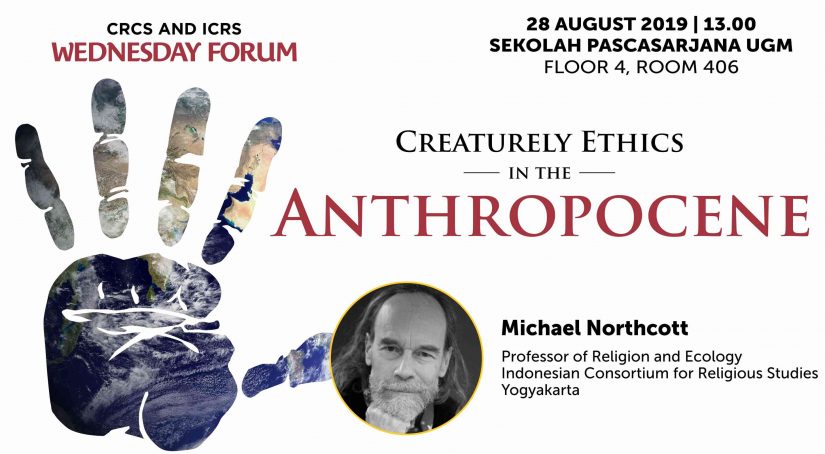
Creaturely Ethics in the Anthropocene
Wednesday Forum – 28 August 2019
The anthropocene names what many are calling a new geological epoch in which Homo sapiens has acquired new powers over the Earth, so that the present and future evolution of life on Earth, including the numbers and distribution of species, is in future determined by the actions and powers of humans. This is because humans – especially Homo industrialis – have overtaken nonhuman creatures and forces in the movement of materials on Earth and even in the determination of the chemistry of the Earth. In this forum Michael Northcott explores how religious ethics, and especially the religious category of ‘creature’ which includes humans and otherkind, can reset and repair the assymetric relations between contemporary humanity and otherkind. In this way humans will enable other creatures to recover their divinely given planetary agency, and so aid humanity in restoring a more ecologically sustainable, biodiverse and climate stable habitat for all life on Earth in the Anthropocene
Michael Northcott is Professor of Religion and Ecology at the Indonesian Consortium of Religious Studies, Yogyakarta (2019-), and Emeritus Professor of Ethics in the University of Edinburgh (2018-). He was Guest Professor at the University of Heidelberg in 2018. From 2013-16 Michael was PI of a large grant from the UK Arts and Humanities Research Council and led an interdisciplinary team of researchers at the University of Edinburgh who investigated the temporal, political and ethical frames of faith-based environmental activists in the UK and the USA. Michael has published numerous books and papers at the interface of ethics, ecology, politics and religion including A Political Theology of Climate Change (Eerdmans 2013) and Place, Ecology and the Sacred: The Moral Geography of Sustainable Communities (Bloomsbury 2015). He is currently working on two research projects: on religious ethics in the Anthropocene; and on religion and ecology in the Malay Archipelago.
Look at the full poster of this event here.


